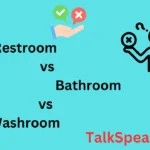When it comes to celebrating milestones, a baby’s 1st birthday holds special significance.
But what about the term “1th birthday“? While it might appear in casual conversations or online, it’s grammatically incorrect.
The correct form is “1st birthday,” as “1th birthday” is a grammatical error.
This article dives deep into the distinctions between “1st birthday” and “1th birthday”, uncovering the rules behind ordinal numbers, why mistakes happen, and how to avoid them.
What Are Ordinal Numbers?
Ordinal numbers indicate position or sequence, unlike cardinal numbers, which show quantity. For example:
- Cardinal: 1, 2, 3, 4.
- Ordinal: 1st, 2nd, 3rd, 4th.
Ordinal numbers are essential in everyday life, whether referencing dates, rankings, or anniversaries.
Rules of Ordinal Numbers in English
The English language follows clear rules for ordinal numbers:
| Number | Ordinal Form | Suffix |
|---|---|---|
| 1 | 1st | -st |
| 2 | 2nd | -nd |
| 3 | 3rd | -rd |
| 4 | 4th | -th |
Special Cases
- Numbers ending in 1, except for 11, take -st (e.g., 21st, 31st).
- Numbers ending in 2, except for 12, take -nd (e.g., 22nd, 32nd).
- Numbers ending in 3, except for 13, take -rd (e.g., 23rd, 33rd).
- Numbers ending in 11, 12, or 13 always take -th.
Why “1st Birthday” is Correct
The term “1st birthday” adheres to grammatical rules. Here’s why:
The Suffix “-st”
The number 1 uses the suffix “-st”, as it corresponds to the word “first.” This rule applies consistently in English grammar.
- Example: “This is my 1st choice.”
Real-World Applications
You’ll encounter “1st” in various contexts, such as:
- Dates: “January 1st” marks the start of the year.
- Rankings: “She finished 1st in the race.”
- Events: “Celebrate the baby’s 1st birthday with a party.”
Cultural Importance of the 1st Birthday
The 1st birthday is a momentous occasion. It marks the completion of a baby’s first year of life—a time of growth, milestones, and cherished memories. Cultures worldwide celebrate it with unique traditions:
- United States: A cake smash is a common tradition.
- Korea: “Doljanchi” includes rituals to predict the child’s future.
- India: Families often host religious ceremonies to bless the child.
Why “1th Birthday” is Incorrect
Now, let’s address “1th birthday”—a term often seen in typos or informal usage.
Grammar Breakdown
The suffix “-th” applies to most ordinal numbers, but not to 1. Using “1th” ignores the standard rule, creating an error.
Common Missteps
- Confusion with Patterns:
People might assume “1th” follows the same rule as “4th” or “5th.” However, English ordinals have exceptions (1st, 2nd, 3rd). - Lack of Awareness:
Language learners or even native speakers may use “1th” due to a lack of understanding about suffixes.
Practical Examples of Incorrect Usage
Here’s why “1th” doesn’t work in context:
- Incorrect: “Happy 1th Birthday!”
- Correct: “Happy 1st Birthday!”
How to Avoid Mistakes with Ordinal Numbers
Avoiding errors like “1th birthday” is simple with a bit of practice.
Tips for Correct Usage
- Memorize Exceptions: Remember that 1st, 2nd, and 3rd are the exceptions, while most others use -th.
- Use Full Words First: Think “first” before writing “1st.”
- Check Context: Whether it’s a date or an event, double-check the spelling.
Use Technology to Help
- Spell-Check Tools: Most word processors and apps can catch errors like “1th.”
- Grammar Apps: Tools like Grammarly or Hemingway highlight mistakes in real time.
FAQ on Ordinal Numbers
Q: Is “1th birthday” ever correct?
No. The correct term is always “1st birthday.”
Q: What about numbers like 21 or 31?
For numbers ending in 1, the suffix “-st” applies (e.g., 21st, 31st).
Q: Why is it important to use correct ordinal numbers?
Accurate language improves communication and avoids misunderstandings, especially in professional or formal settings.
Quick Reference Table
Here’s a handy guide to ordinal numbers for quick checks:
| Number | Ordinal | Common Context |
|---|---|---|
| 1 | 1st | Birthdays, rankings |
| 2 | 2nd | Competitions, anniversaries |
| 3 | 3rd | Events, milestones |
| 4+ | 4th, 5th… | Most other contexts |
Conclusion
The difference between “1st birthday” and “1th birthday” lies in understanding and applying the rules of ordinal numbers. While “1st birthday” is correct and widely used, “1th birthday” is an error rooted in misunderstanding.
By learning the rules and practicing proper usage, you’ll avoid common pitfalls and communicate more effectively.
So, the next time you celebrate a milestone, make sure the grammar shines as brightly as the occasion! 🎉

Sophie Mitchell, a seasoned English educator, brings her passion for language and years of teaching expertise to TalkSpeaker. With a knack for simplifying grammar and expanding vocabulary, she empowers learners to master English with confidence.




